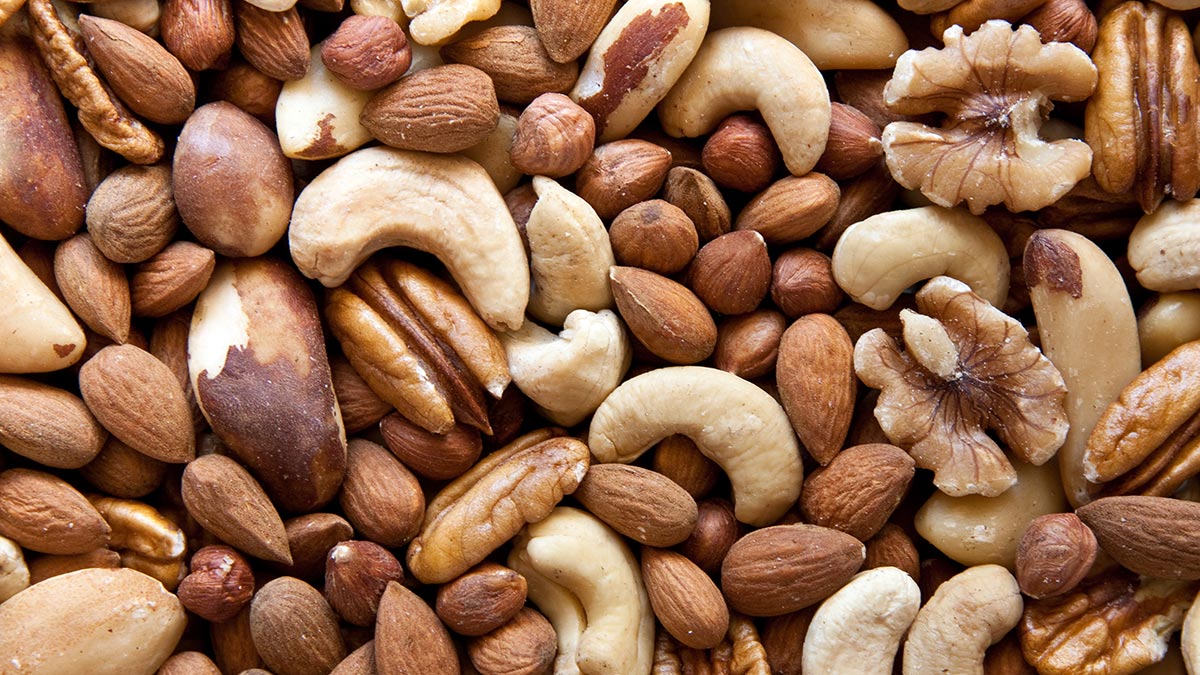This Is How to Live Longer, According to Science

For centuries, researchers and philosophers have been fascinated by the secrets to living a long and healthy life. What sets certain people apart in their ability to thrive and flourish well into their hundreds?
While countless anecdotal health claims are circulating on social media – limit meals to an 8-hour time period, drink hot water and lemon every day, laugh as much as possible – the most reliable source is science itself.
Over the years, studies have identified actionable daily habits that can slow down the aging process and reduce the risk of disease, degenerative conditions and premature death.
So what does it take to be a ‘superager’? It’s not just blind luck and good genes. We’ve scoured the research to find a handful of simple steps that could add years to your life.

1. Eat more nuts
By now, we all understand the importance of eating five servings of fruits and veggies each day. But what about nuts and seeds? A 2021 study conducted by the Australian Institute of Health and Welfare revealed that a diet lacking in these two food groups can have a greater impact on our disease risk than a shortage of vegetables.
This isn’t surprising really, considering that nuts are nutritional powerhouses, boasting a potent punch of protein, fiber, antioxidants, and beneficial plant compounds, along with essential minerals like copper, magnesium, potassium and folate. Multiple research studies have shown that regularly loading them into your diet can contribute to a longer, healthier life by reducing the risk of heart disease, high blood pressure and certain cancers. In fact, one study found that people who ate at least three servings of nuts per week had a 39% lower risk of premature death.
Upping your intake is easier than you think. Try adding chopped peanuts to salads, sprinkling black sesame seeds onto stir-fries, or mixing almonds into coconut yogurt for a quick and simple breakfast option.
2. Start cross-discipline training
Staying active is a key cornerstone of good health, and when it comes to choosing your workout routine, science suggests that a blend of weights and cardio is your best bet for reaching the age of 100.
According to a study in the British Journal of Sports Medicine, which tracked the exercise habits of nearly 100,000 people aged 55 to 74 over nine years, those who combined weight lifting with vigorous aerobic exercise saw the greatest benefits to their health. In fact, their risk of dying at the end of the study was 41% to 47% lower compared to those who didn’t exercise at all.
To maximise your gains, mix things up at the gym with cross-discipline training: incorporating a variety of strength and cardio workouts like boxing, pilates, calisthenics, and strength training. Not only does this stop your workout routine from getting stale, but it also challenges your body in new ways, leading to increased power, efficiency and dynamic strength.

3. Find your tribe and nourish it
Thanks to social media, it’s easier than ever to keep tabs on friends and family, but relying too much on technology can leave us feeling disconnected. A 2023 study found that spending too much time on social media was linked to higher levels of loneliness, no matter your age or gender.
But here’s some good news: fostering solid, real-life friendships can actually boost your health and lifespan. A study from Michigan University tracked participants over eight years and discovered that those with strong friendships were 24% less likely to die during that time. What makes a friendship count? Those that you see regularly, and that make you feel happy and supported, according to the researchers.
Instead of solitarily scrolling through Instagram, why not try picking up a new hobby or gym class so you can meet new groups in your local community? Aside from helping to tame your phone addiction, it could actually be good for your health too.
4. Set boundaries with work
Stress is everywhere right now, and no more so than the workplace. Recent stats found that almost half of UK employees are close to burnout, a state of physical and mental exhaustion that makes it difficult to complete basic, everyday tasks.
Stressing over an insurmountable workload isn’t just disruptive in the short term, studies have found that women experiencing high levels of stress or anxiety are up to two times more likely to die from heart disease, stroke or lung cancer. Similarly, men facing heightened levels of stress or anxiety have a risk of premature death up to three times higher compared to their less frazzled counterparts.
Don’t panic and hand in your notice just yet though: there are simple ways to carve out more moments of calm in the workplace. Establishing healthy boundaries is an effective step to lightening the load. Focus on communicating your limits, silencing your work emails at the weekends and learning to say ‘no’ when you’re reaching capacity.
5. Ditch the UPFs
In both the UK and US, ultra-processed foods (UPFs) now make up more than half of the average diet. UPFs are everyday foods like biscuits, spreads, cereals and soft drinks that have been heavily processed and often contain additives, preservatives and artificial ingredients. They’re usually high in unhealthy fats, sugars, and salt too, but lacking in the essential nutrients our bodies need.
A recent large-scale review highlighted just how bad UPFs can be for our health. Researchers found that regularly eating these foods is linked to 32 different harmful outcomes, including higher risks of heart disease, cancer, type 2 diabetes, poor mental health and even premature death.
Avoiding UPFs can be tough since they’re pretty much everywhere in the supermarket, and are often misleadingly marketed as healthy choices. A good rule of thumb is to go for whole foods wherever you can, and cook from scratch rather than buying pre-made options.
Also, check your food labels on the weekly shop – if a product has a long list of unpronounceable ingredients, it’s more than likely laden with artificial additives and not the best option for health.
Finally, try to cut back on frozen meals, grab-and-go snacks and fast food dinners. Although incredibly moreish, these foods often contain lots of preservatives, colourings and sweeteners to enhance their taste, which can quickly disrupt the balance of beneficial bacteria in our guts and raise our risk of adverse health effects.


















